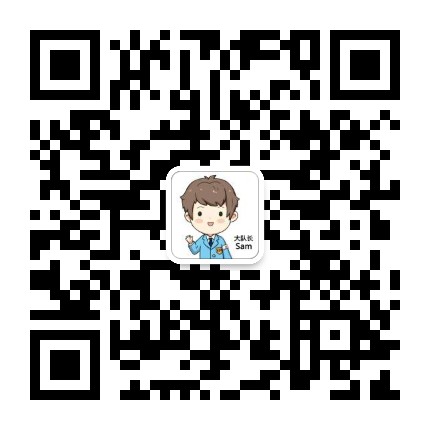托福培训
托福考试动态
2018-05-31 09:53
来源:
作者:
Schooling and Education
It is commonly believed in United States that school is where people go to get an education. Nevertheless, it has been said that today children interrupt their education to go to school. The distinction between schooling and education implied by this remark is important.
Education is much more open-ended and all-inclusive than schooling. Education knows no bounds. It can take place anywhere, whether in the shower or in the job, whether in a kitchen or on a tractor. It includes both the formal learning that takes place in schools and the whole universe of informal learning. The agents of education can range from a revered grandparent to the people debating politics on the radio, from a child to a distinguished scientist. Whereas schooling has a certain predictability, education quite often produces surprises. A chance conversation with a stranger may lead a person to discover how little is known of other religions. People are engaged in education from infancy on. Education, then, is a very broad, inclusive term. It is a lifelong process, a process that starts long before the start of school, and one that should be an integral part of one’s entire life.
Schooling, on the other hand, is a specific, formalized process, whose general pattern varies little from one setting to the next. Throughout a country, children arrive at school at approximately the same time, take assigned seats, are taught by an adult, use similar textbooks, do homework, take exams, and so on. The slices of reality that are to be learned, whether they are the alphabet or an understanding of the working of government, have usually been limited by the boundaries of the subject being taught. For example, high school students know that there not likely to find out in their classes the truth about political problems in their communities or what the newest filmmakers are experimenting with. There are definite conditions surrounding the formalized process of schooling.
The Language of Music
A painter hangs his or her finished pictures on a wall, and everyone can see it. A composer writes a work, but no one can hear it until it is performed. Professional singers and players have great responsibilities, for the composer is utterly dependent on them. A student of music needs as long and as arduous a training to become a performer as a medical student needs to become a doctor. Most training is concerned with technique, for musicians have to have the muscular proficiency of an athlete or a ballet dancer. Singers practice breathing every day, as their vocal chords would be inadequate without controlled muscular support. String players practice moving the fingers of the left hand up and down, while drawing the bow to and fro with the right arm-two entirely different movements.
Singers and instruments have to be able to get every note perfectly in tune. Pianists are spared this particular anxiety, for the notes are already there, waiting for them, and it is the piano tuner’s responsibility to tune the instrument for them. But they have their own difficulties; the hammers that hit the string have to be coaxed not to sound like percussion, and each overlapping tone has to sound clear.
This problem of getting clear texture is one that confronts student conductors: they have to learn to know every note of the music and how it should sound, and they have to aim at controlling these sound with fanatical but selfless authority.
Technique is of no use unless it is combined with musical knowledge and understanding. Great artists are those who are so thoroughly at home in the language of music that they can enjoy performing works written in any century.
The Beginning of Drama
There are many theories about the beginning of drama in ancient Greece. The on most widely accepted today is based on the assumption that drama evolved from ritual. The argument for this view goes as follows. In the beginning, human beings viewed the natural forces of the world-even the seasonal changes-as unpredictable, and they sought through various means to control these unknown and feared powers. Those measures which appeared to bring the desired results were then retained and repeated until they hardened into fixed rituals. Eventually stories arose which explained or veiled the mysteries of the rites. As time passed some rituals were abandoned, but the stories, later called myths, persisted and provided material for art and drama.
Those who believe that drama evolved out of ritual also argue that those rites contained the seed of theater because music, dance, masks, and costumes were almost always used, Furthermore, a suitable site had to be provided for performances and when the entire community did not participate, a clear division was usually made between the acting area and the auditorium. In addition, there were performers, and, since considerable importance was attached to avoiding mistakes in the enactment of rites, religious leaders usually assumed that task. Wearing masks and costumes, they often impersonated other people, animals, or supernatural beings, and mimed the desired effect-success in hunt or battle, the coming rain, the revival of the Sun-as an actor might. Eventually such dramatic representations were separated from religious activities.
Another theory traces the theater's origin from the human interest in storytelling. According to this vies tales (about the hunt, war, or other feats) are gradually elaborated, at first through the use of impersonation, action, and dialogue by a narrator and then through the assumption of each of the roles by a different person. A closely related theory traces theater to those dances that are primarily rhythmical and gymnastic or that are imitations of animal movements and sounds.

扫码添加大队长Sam,领取最新沪上热门国际学校招生信息
A BETTER YOU,A BIGGER WORLD!
版权及免责声明
①凡本网注明"稿件来源:新东方"的所有文字、图片和音视频稿件,版权均属新东方教育科技集团(含本网和新东方网) 所有,任何媒体、网站或个人未经本网协议授权不得转载、链接、转贴或以其他任何方式复制、发表。已经本网协议授权的媒体、网站,在下载使用时必须注明"稿件来源:新东方",违者本网将依法追究法律责任。
② 本网未注明"稿件来源:新东方"的文/图等稿件均为转载稿,本网转载仅基于传递更多信息之目的,并不意味着赞同转载稿的观点或证实其内容的真实性。如其他媒体、网站或个人从本网下载使用,必须保留本网注明的"稿件来源",并自负版权等法律责任。如擅自篡改为"稿件来源:新东方",本网将依法追究法律责任。
③ 如本网转载稿涉及版权等问题,请作者见稿后在两周内速来电与新东方网联系,电话:010-60908555。
托福培训
托福考试动态
